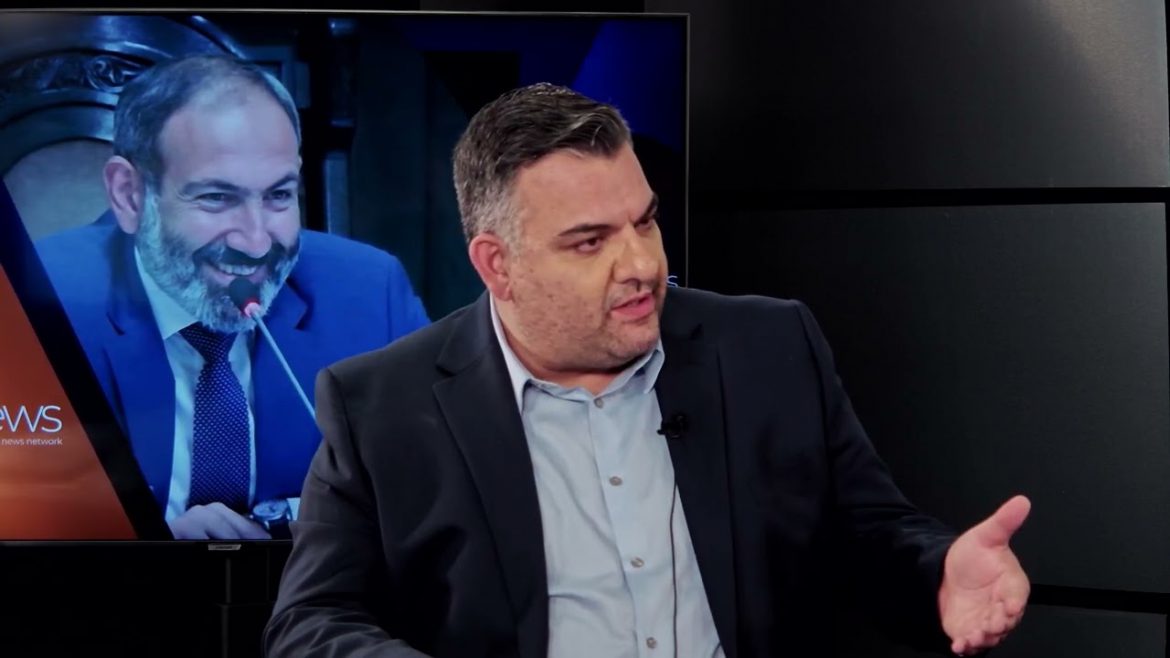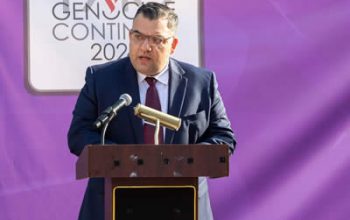By Levon Baronian
In recent years, Armenia’s strategic realignment under Prime Minister Nikol Pashinyan has marked a dramatic shift from its traditional geopolitical alignments. While the recent strategic partnership agreement with the United States has been presented as a bolster to Armenia’s sovereignty and security, it threatens to further undermine the nation’s long-term security in a region with powerful, dangerous, and often vengeful neighbors. More worryingly, it serves to attempt to consolidate Pashinyan’s own hold on power, which has proven detrimental to Armenia’s national interests. The Pashinyan regime continues to antagonize Armenia’s two regional economic and security partners, Russia an Iran, who have served as the only real bulwark against the Turkish-Azeri tandem swallowing up Armenia.
The strategic partnership with the U.S., while superficially a step toward enhancing Armenia’s global standing, is deeply flawed. It introduces dependency on an new supposed ally whose involvement in regional conflicts has historically been inconsistent and often ends when it no longer serves American interests. This leaves Armenia exposed and without the robust support system it needs in a volatile regional context.
Domestically, Pashinyan’s governance has systematically dismantled the checks and balances that underpin democratic institutions. This not only undermines the rule of law and dilutes public accountability but also centralizes decision-making in a manner that is antithetical to the democratic process. Such governance makes it difficult to address national crises effectively and transparently. Pashinyan’s tenure has been characterized by a troubling centralization of power that mirrors authoritarian regimes rather than the democratic values he supposedly once espoused.
Moreover, Pashinyan’s direct responsibility for the loss of Artsakh and the subsequent capitulation to the interests of Azerbaijan and Turkey marks a significant low in Armenian foreign policy. His leadership during this critical period led to substantial territorial and strategic losses, weakening Armenia’s standing in the region and emboldening its adversaries. The continued erosion of Armenia’s territorial integrity and sovereignty under his watch is a stark testament to the need for a leadership change.
Armenia’s situation today calls for a leader who understands the complexities of regional politics and who can navigate these challenges with foresight and strategic acumen. The country needs a leader who can restore trust among its citizens and international allies alike by reinforcing Armenia’s commitment to its national interests and democratic values.
The time for Pashinyan to step aside is long past. His continued presence at the helm of Armenia’s government is not just a failed opportunity but a growing liability. Armenia must seek new leadership that is capable of rectifying the current course—leadership that will prioritize the nation’s sovereignty, strengthen its democratic institutions, and reclaim respect on the international stage.
As Armenia faces these critical challenges, the call for change has never been more urgent. The future of Armenia hinges on its ability to enact swift and decisive leadership changes that align with the true aspirations and needs of its people, ensuring a secure, prosperous, and dignified future for all Armenians.




